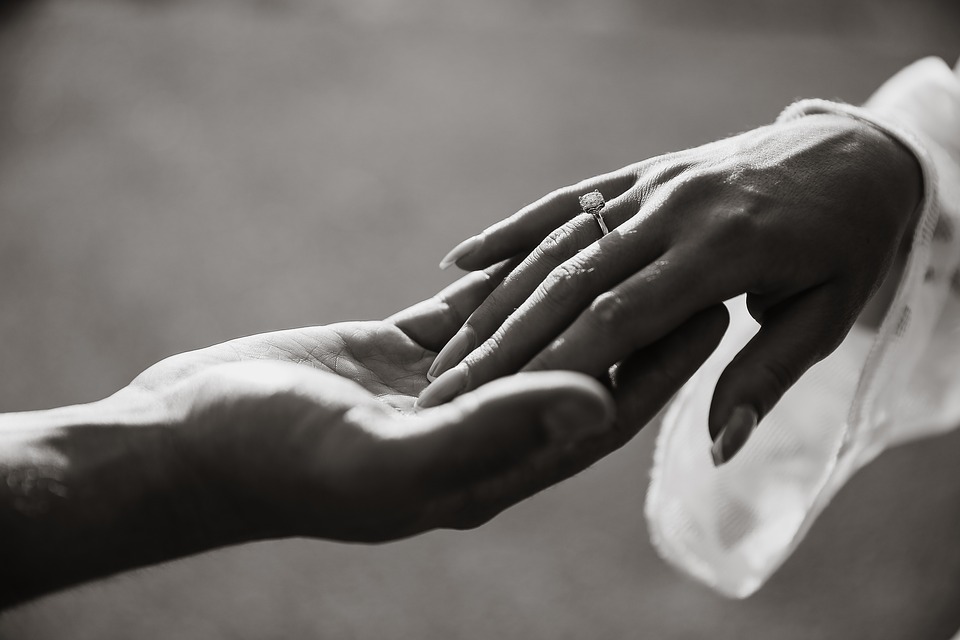
Yes, you’re both there virtually, but Canada wants you to be in the same room to get married for spousal sponsorship.
Canada’s immigration department doesn’t recognize virtual marriages for family-class sponsorship, however, foreign spouses might still be able to cross the border.
The rule dates back to 2015. Immigration, Refugees and Citizenship Canada (IRCC) decided that only Canadian Armed Forces members could sponsor their spouse who they married from a distant location, and only if certain conditions forced the marriage to be done virtually or “by proxy.”
This decision, which is causing some cross-border couples headaches today, was an effort to prevent victims of forced marriage from being eligible for immigration. Proxy marriages facilitate this type of abuse, because neither person has to be present for the solemnization. In simple terms, it is easier to force two people to get married if they are not the ones signing the contract.
But when it comes to a legitimate couple who needs to have a video conference wedding because of coronavirus measures, immigration law experts question whether or not it counts as a proxy wedding.
The difference between proxy and virtual weddings is that proxies can be done by a representative, whereas couples participate in virtual ceremonies either through video messenger, phone or even fax.
The law under the Immigration Refugee Protection Regulations specifically states that couples have to be “physically present” at their marriage ceremony in order to be considered for spousal sponsorship.
“To be considered physically present at a marriage ceremony, both parties must have participated in a wedding ceremony in person,” both IRCC and Canadian Border Services Agency (CBSA) wrote to CIC News.
The “in person” distinction seems to be increasingly called for during the pandemic. Demand for virtual marriages spiked in March and has remained steady since. Kevin Smith, the marketing manager of WebWed, says the online marriage service saw a 400 per cent increase in sales since the lockdown.
“We are doing approximately 20 weddings every day and we used to do about 20 weddings a month,” Smith told CIC News.
The immigration department has put forth a number of measures to keep families together during the pandemic. Most recently, IRCC has made exemptions for immediate family, including spouses, to come to Canada if they are staying for more than 15 days. However, IRCC says that no special measures are in place to accommodate proxy marriages.
That doesn’t mean married couples who tied the knot over video messenger have no options. Married couples can still be assessed as common-law partners if they meet all the requirements and have lived together for at least 12 consecutive months. They may also be able to get married for IRCC’s purposes in Canada if they are allowed to cross the border.
Coming to Canada for love during COVID-19
Married couples and common-law partners must prove their marital status to border officers in order to be exempt from travel restrictions. They also have to comply with the mandatory quarantine regulations. Border officers assess each individual case and pass judgements based on the current travel laws, and the facts established by the traveller.
The Canadian border offers the following list of some of the documents that can be considered proof of marriage:
- a marriage certificate;
- proof of registration of marriage with a government (local, provincial, state or country) authority;
- if the couple have children in common, long-form birth certificates or adoption records listing the names of both parents; and
- wedding invitations and photos.
Common-law partners can prove their relationship status by providing:
- shared ownership of residential property;
- joint leases or rental agreements;
- bills for shared utility accounts, such as:
- gas,
- electricity,
- telephone,
- joint utility accounts;
- important documents for both partners showing the same address, such as:
- driver’s licenses,
- insurance policies, and
- other identification documents.
Border services will accept marriage certificates that were issued in other countries, but couples still have to prove that the marriage is legally binding both in Canada and in the region where it took place.
“A marriage that took place abroad must be valid both under the laws of the jurisdiction where it took place and under Canadian federal law in order to be considered legal for immigration purposes,” CBSA said in an email. “A marriage that is legally recognized according to the law of the place where it occurred is usually recognized in Canada, but the onus is on applicants to prove that their marriage is legal.”